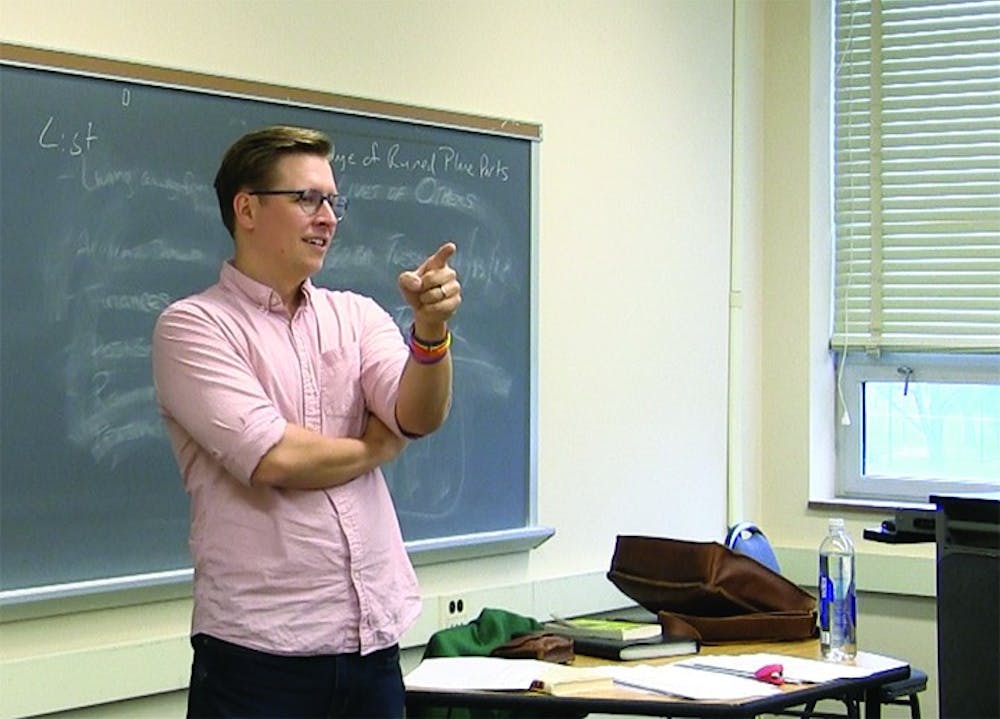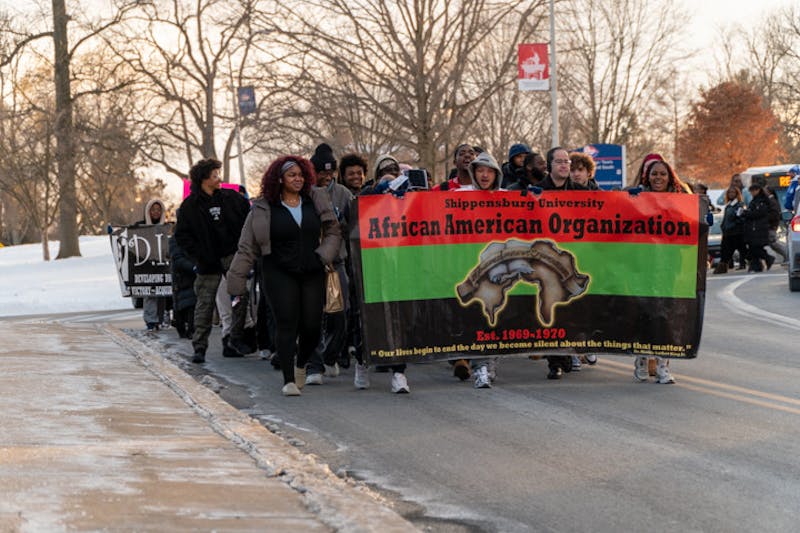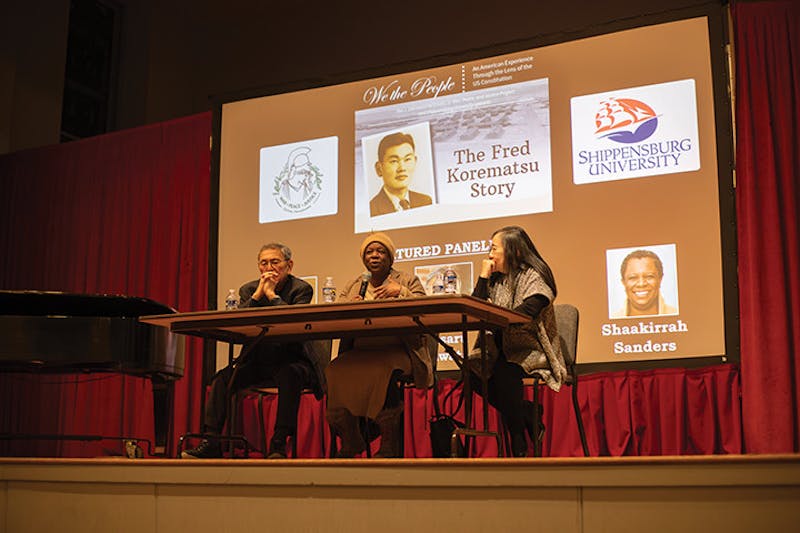Shippensburg University introduced a new course this semester called UNIV 101: First Year Seminar, which all first-year students are required to take.
The course is designed to help guide and transition students into college. Each class has no more than 20 students.
There are 45 faculty members from all over campus teaching 74 sections of the course. Each faculty member chose a topic that he or she wanted to teach during the course.
For example, English professor Laurie Cella is teaching about happiness. However, students are not paired with specific professors according to their academic major, according to First Year Experience and Community Engagement director Javita Thompson.
“We wanted them to teach a topic, and along with that topic, put in simple milestones that students could learn to help them transition,” she said.
Each seminar course also has a peer anchor who is a student at the university and serves as a step between first-year students and the faculty member teaching the course.
They help students by providing assistance with assignments in the course. Peer anchors also help faculty members in the classroom.
SU wanted to create a first-year experience for a while, but officials had to first figure out a few logistics.
The General Education Council had to submit proposals to approve the changes to the general education program that would make the seminar a requirement for students.
SU President Laurie Carter wanted the course because she had taken a first-year seminar course when she went to Clarion University, according to Thompson.
“With her leadership and some very strong people submitting proposals to the General Education Council and the University Curriculum Committee, they were really very accepting and wanting this to happen too because leadership wanted it to happen. It was the right thing to do for students that we serve,” she said.
More than 1,300 students were registered for the course this semester. The challenge was to make the First-Year Experience last all year. All students are required to take HIS 105: Historical Foundations of Global Cultures. That class has a size of 40 students, which makes for a transition from the 20-student First-Year Seminar course.
This course will feature history anchors who will spend half of their time in the classroom and half of their time in a tutoring lab, Thompson said.
There have also been discussions about having a program called First-Year February.
“Programming geared toward our first-year students in the month of February to let them know that we weren’t just courting you for the first semester. We want to be able to do this for the full academic year,” Thompson said. “Ultimately, your success is Shippensburg University’s success.”
English professor Jordan Windholz is teaching his First-Year Seminar course with the topic of poetry and if it is useful to study.
Students discuss the poems in class in relation to topics such as contemporary culture, history and politics. They also do professional development, including resumes and career exploration.
Some students want to know more topics such as note-taking and study skills, but many have said taking time to slow down and analyze poems has helped them in their other courses.
“They’re discovering that they’re getting some study habits and reading habits and thinking habits, that maybe if I lectured on those things they’d know about but they wouldn’t do. They find themselves practicing them because they have to read poems,” Windholz said.
Peer anchors run workshops outside of class to address topics such as working with advisers, and a small amount of time in class is dedicated to those topics.
Windholz said he is supportive of students not being able to pick which First Year Seminar course they are put in, because students would most likely pick topics they are already interested in.
“The learning danger is that if you let students pick their topic, they might not be exposed to something that they would otherwise enjoy,” he said.
Some of his students wanted to drop the course when they first found out the topic is poetry, but now they really enjoy it.
He believes the course is a self-examination for students at the beginning of their college career.
The hope of the course is to apply skills students learn to other classes in a way that does not reduce the course as a pathway to a job. Another goal is for students to gain allies out of their peers and professors.
“They have a class that is outside of some of their major tracks that they can see that people are here to help them learn,” Windholz said.




The Slate welcomes thoughtful discussion on all of our stories, but please keep comments civil and on-topic. Read our full guidelines here.